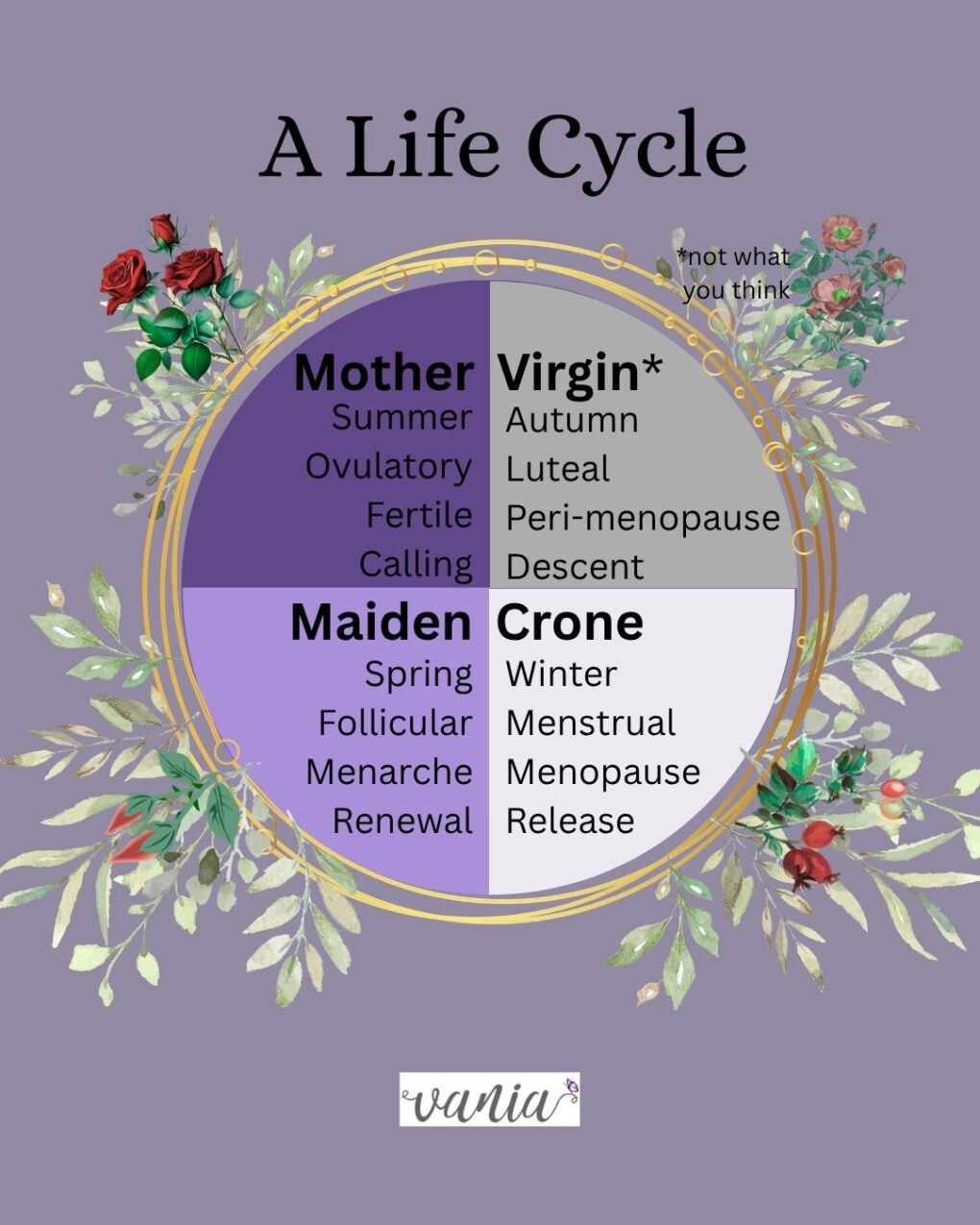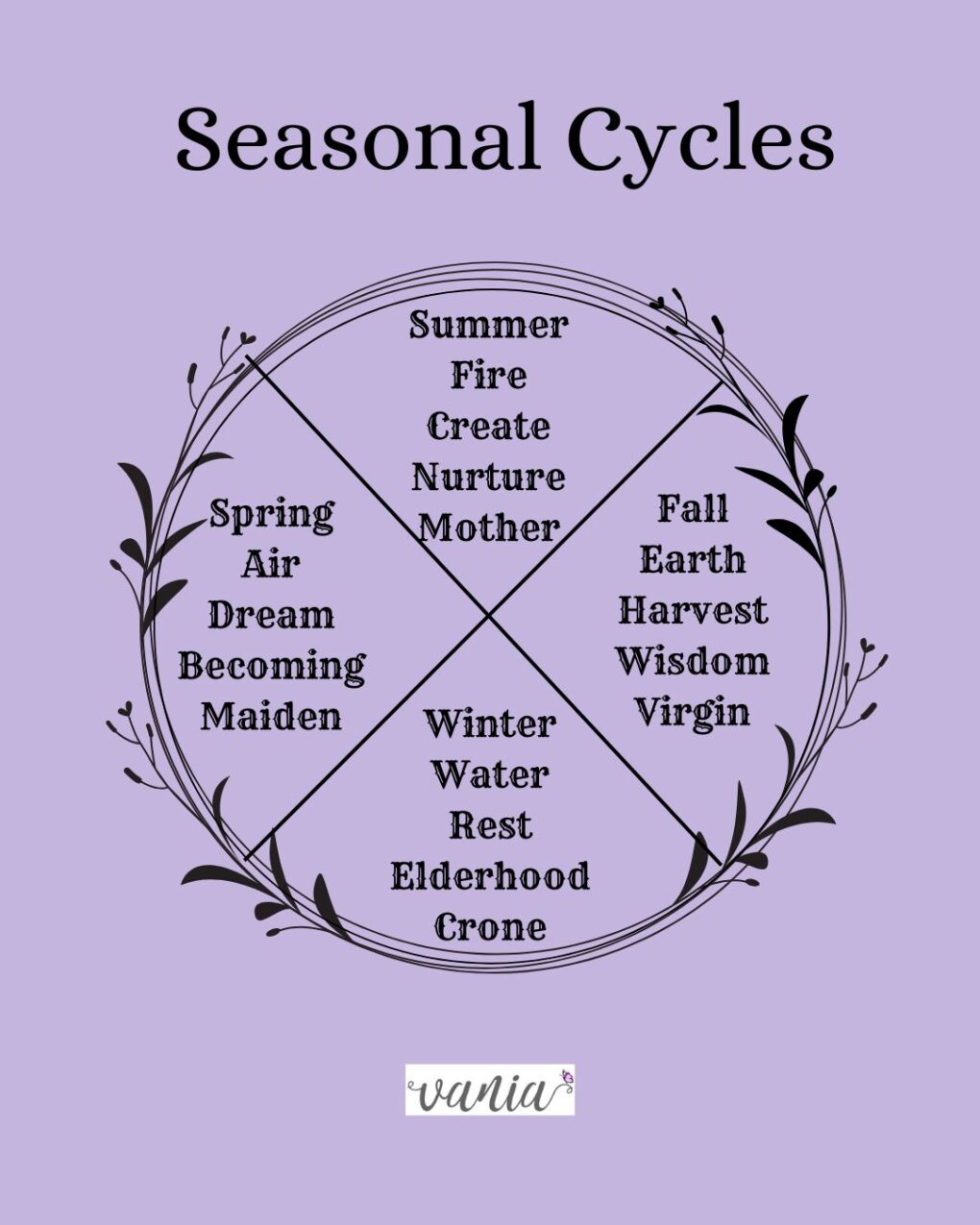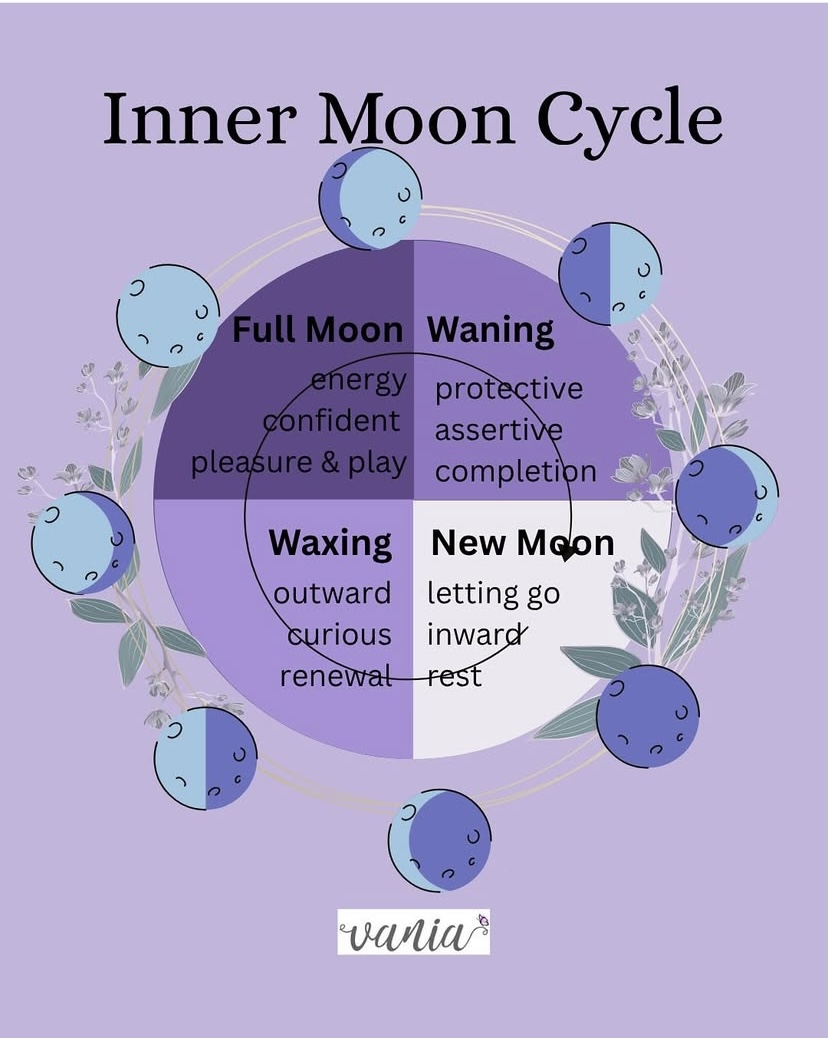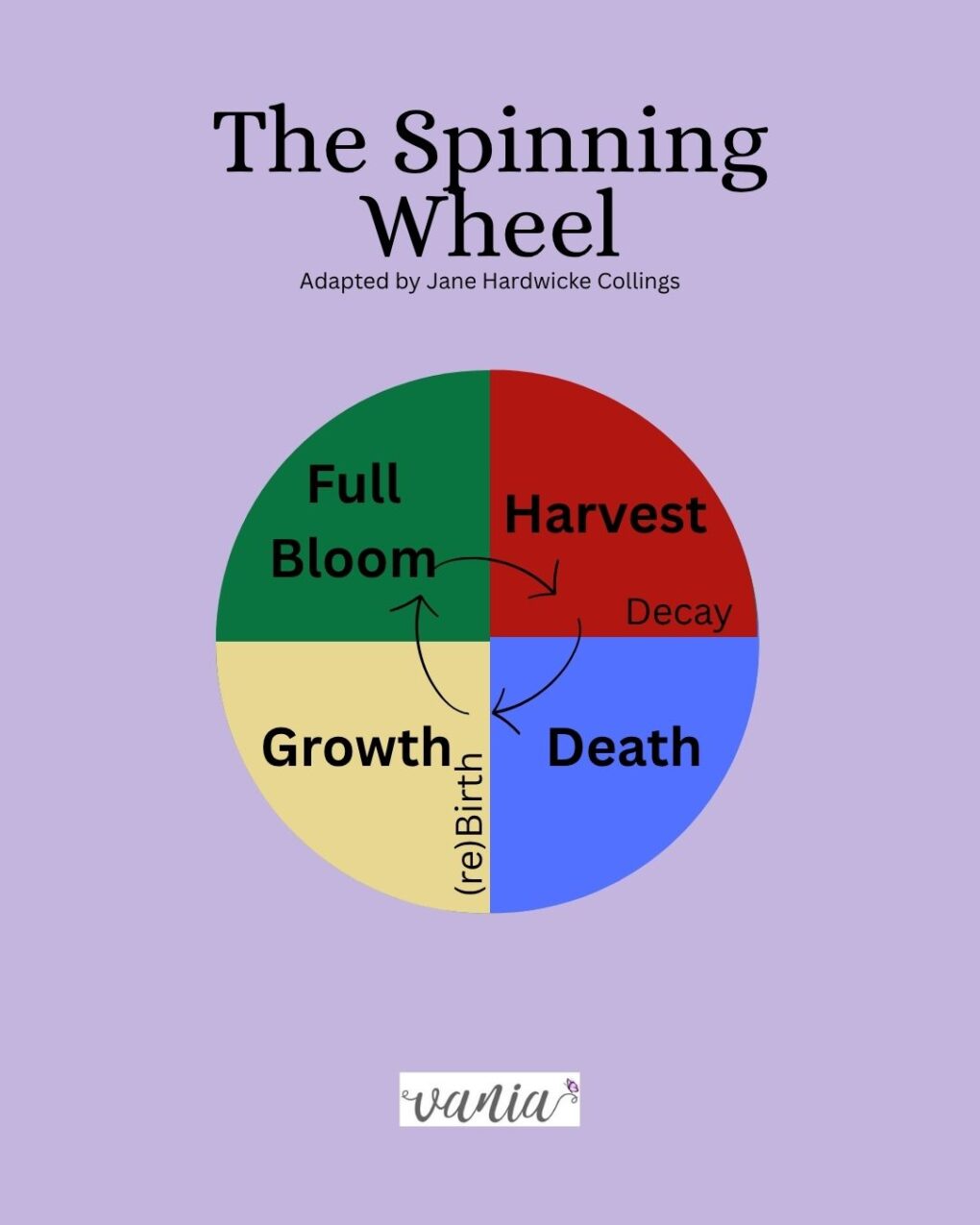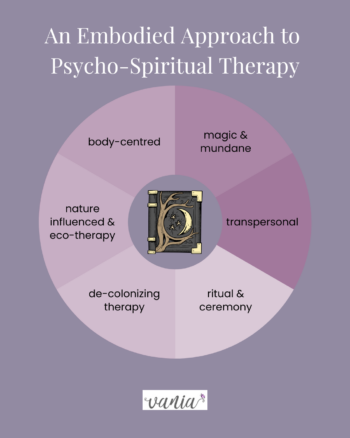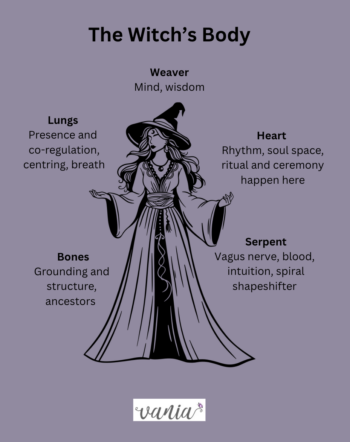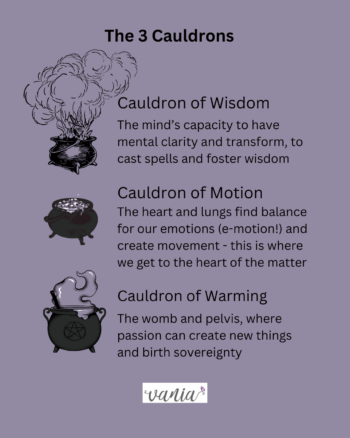When my mom died in 2022, she left a huge hole in my heart. Not just for the void of not having a mother anymore and getting to be mothered in my older years, but also because i was left with so many unanswered questions about my motherline, ancestors and lineage, let alone have a chance to truly heal my relationship with her. I was just starting to repair our complicated relationship as well as learning more about my blood rites and motherline. There is so much that has died with her, and realizing this has awakened a long-silent part of me.
You could say her death radicalized me. It definitely was a catalyst to re-route me on a path that i now see i was always meant to be on. Some of it was about becoming more grief literate. And, even more so, it all leads back to my womb and menstrual cycles in general..
First, bear with me as i take you on a meandering path to give you the backstory of sorts, or the spiralling red thread path.
I was initiated by menarche at a mere 9 years old. I have been bleeding, somewhat regularly ever since, for 40 years. I think i have learned a thing or two about menstruation, monthly blood, and all the stages, stained undies, and stories in between. And yet with my most recent surprise bleeds at 49, i am seeing just how much more there is to learn.
Sure, I know how to use a tampon, a cup, and free bleed. Sure i know that i love having sex during my bleed. Yes, i know how to take out stains. What i didn’t know was how to listen to my own needs during the in-between times, the liminal times of luteal and follicular stages. That knowledge came many years into my relationship with menstruation, when i started to try to conceive.
I am now connecting all the red dots, and the truths that have been waiting for me to follow said dots. Kind of like the spotting that happens close to a bleed.
I am seeing the powerful teacher that menstruation is. I am becoming That Woman who talks about her menstrual cycle, and trying to change the stuck and incorrect term “period” to monthly bleed or moon time. Because, guess what? Our life doesn’t come to an end when we bleed. Our life isn’t over with a full stop – there is so much more to it that comes after the end of the period. That can mean each month as we cycle through the 4 stages of our menstrual cycle. And that also applies to the shift that is menopause.
This is where the blood mysteries come in. We are reclaiming this old truth that our monthly blood cycle is an oracle and our body is a temple. Our Womb is the altar of truth and the home of our spiritual awakening. It is a red thread, not unlike a tether or anchor that connects us to our ancestors.
I know, it’s all beginning to sound a bit woo, and guess what? I AM AND IT IS. Get over it. Move on.
Because, what could be more magical than having blood that doesn’t hurt, because there is no injury in fact. Those of us with wombs are shedding what we don’t need via our blood and it’s a river not an injury. This is an especially powerful truth when men are acting like boys and causing pain and suffering in this world as i write this, and so much blood is being spilled, and our rights to our own body autonomy are being stolen.
My mom died of complications that came from ovarian cancer. She had stomach pains for months, and so eventually went into the hospital because the doctors knew something was wrong but not what. She was 78 and hadn’t had her monthly bleed in years. I will never know when that rite of passage happened for her. One of my biggest regrets is not knowing when she was perimenopausa,l let alone when she reached menopause. We surely didn’t celebrate it or acknowledge it. It was never spoken about. In retrospect, i can suspect when she went though The Change because of the extra challenging and volatile times in my adolescence. It all makes so much more sense now..
She died because of her reproductive organs’ health had gone unchecked and unchartered for decades. Her death will not be in vain as it motivated me to learn all i can about wombs – the medical, physical and spiritual aspects of it.
These last few years, i have been quietly learning about menstrual health especially as it connects to our mental health. I support people who struggle with mood and body concerns connected to their monthly bleed. I hold space for people who are trying to conceive and haven’t been successful yet, or they have experienced miscarriages. I also companion people through their decision to have an abortion, or terminate their pregnancy. No topic around our blood rites and reproductive mental health is too much or small for me.
I needed to remember this when i was initiated into perimenopause. Looking back, I think i was meant to devote my life and way to be of service to the blood rites and their mysteries.
We are the daughters and children of the generation that was raised to believe that individualism, hyper-independence and self-sufficiency are the ideal. That meant we never talked about what happened at home behind closed doors, be it our sex lives, our time of month, or how much money was earned. So many topics were taboo so the generation of Boomers did not benefit from the modern day red tent and community. Sure, they did aerobics beside each other at the local YMCA, and maybe even changed into their pastel or vibrant work- out clothes beside each other. They surely did NOT talk openly about the womanly ways of life. They were too busy wanting to be like men and to prove that we can do anything that men can, regardless of our body telling us each month that there was a dedicated time to rest and turn inward.
Here’s a story that will showcase this disparity more. It happened to me while on vacation in Nova Scotia last month. When i was treating my family to a whale-watching adventure, the woman (who appeared to be quite older than me) selling the tickets shared her surprise on how i could have teenage children – she was convinced that i looked too young. After sharing my appreciation for her compliment, i also offered gratitude and said “my perimenopausal body is not sure i look that young and would beg to differ,” the woman got flustered and visibly embarrassed – for me, or herself, i’m not sure. She stated something like “yikes, that’s too much information, i don’t know what to do with it.” I laughed it off and also had to remind myself that not everyone is as comfortable to talk about their bodies.
Here’s a mind-fuck inquiry for you to contemplate: If the egg that eventually lead to the creation of me was first created in my grandmother, let us reflect back to what life would have been like back then. What was infused in the cell that became me?
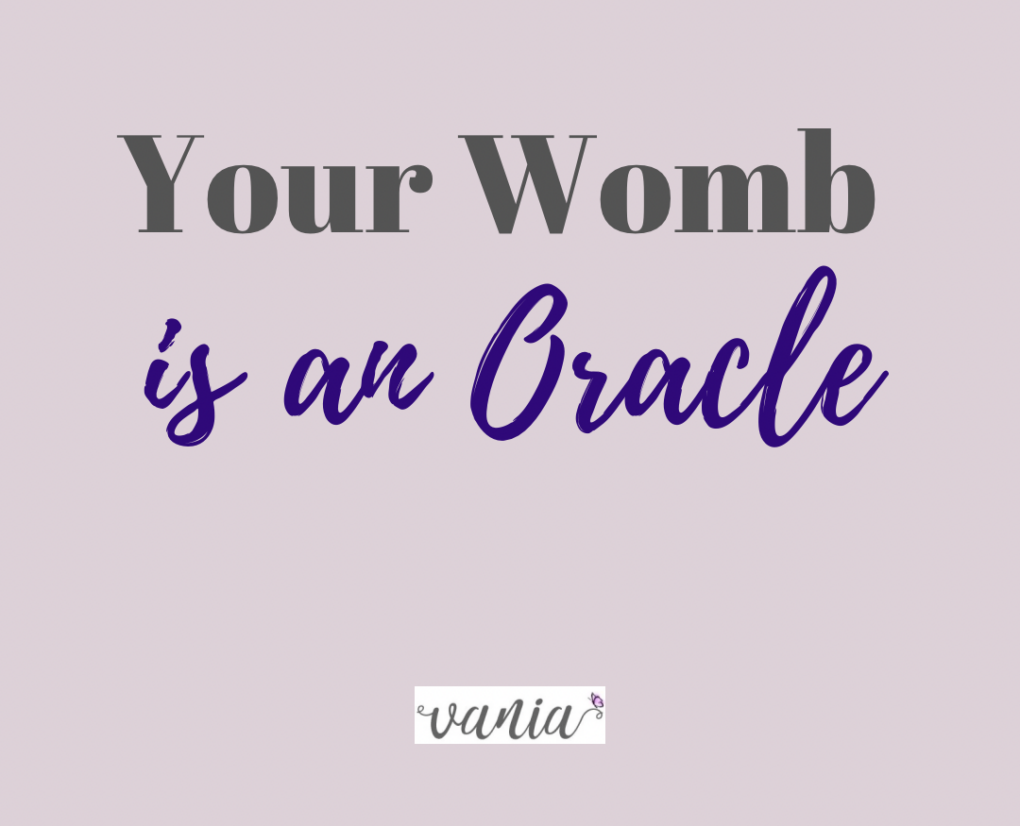
I learned via Jane Hardwicke Collings that how we are conceived, born and how our mother experiences postpartum all have a direct link to who we will live and make decisions in our life. My mom had several miscarriages before me, and several after, including a stillbirth. While i have a younger sister, she does not have children herself. I also don’t know a lot about my motherline, but what i do have access to is how difficult it was to live in Serbia (then Yugoslavia) when my grandmother and mother were born, between 1914 and 1945.
Our blood rites are a spiral path of our own conception, to our birth, then menarche and sexual initiation (consensual), to marriage/conscious relationship and our fertility journey and birth of our children, and then the path towards menopause.
Now, with this generation experiencing the most amount of women and people in perimenopause and menopause (it is estimated that over 1 billion folks will be menopausal in 2030), we are not silent about this very real and physical transformation. Our silence will surely not protect us (thank-you Audre Lorde).
If Jane’s theory of the connection our birth story has to how we live our life is accurate, than i can glean from what i know of my own birth that it would mean many dark nights of the soul, layers of grief and aloneness, and finding my own path alone, without guidance or support.
Starting at the wee age of 9 years old; this is when i got my first bleed. I was initiated by menarche on a warm summer day, and i thought i had an accident in the backyard while playing on the tire swing. I called my mom into the bathroom and she gave me the facts. We also had cake to celebrate, which was fitting as food and making was my mom’s love language.
In my teen years and early 20s, I was curious about the sacred feminine and ancient goddess myths and stories. I got my first oracle deck and many books, including Women Who Run with the Wolves. Because the witch wound was very much alive in me, and was an invisible wound, i hid this side of me. So, I took a side-step and devoted myself to feminism and activism, fighting for women’s rights and safety. Same but different.
That’s how I became a trauma therapist only to then eventually find my way to somatic therapy.
I love using the Narrative Timeline as a resource, so i thought it would be a great way to reflect my journey to here. If i could zoom in onto this ten-year period, like how we see on maps that get close and personal to a specific area, the ten years of 15-25 were a crucial and key demonstration of who i was becoming. Over these ten years, i was danced with the Blood Rites of Adolescence:
At 15, i supported a friend get an abortion
At 16, i moved out of home and lost my virginity
At 17, i protested for abortion rights
At 18, i learned how to experience my own orgasm and found my G-spot
At 19, i started to study the Sacred Feminine intentionally
At 20, i realized how much i love love women
At 21, i volunteered at a Tantra Sex workshop at an annual Sex Research Conference
At 22, i had an unforgettable experience at my first bathhouse
At 23, i went on a transformative trip to India where Spirit led me on a pilgrimage into the ancient temples of yoga, community service, tantra, and meditation/breathwork
At 24, i met my beloved
At 25, i started my career supporting women who experienced intimate partner violence and sexual trauma
At 16 years old, i had my first experience with sex and intercourse. It was not exactly consensual as it was forced and manipulated, complicated and it created a very messy relationship with sex. This also coincided but me moving out of my family home, in a related and connected way. But that story is another one altoghter. By the age of 24 and many sexual partners and lovers, i learned a thing or about healthy relationships and love, and met my now-husband. We married when i was 31. At the beginning of this relationship, i did so much work on myself. After not wanting to be monogamous, nor wanting children, i healed many childhood wounds and started to try to conceive. Before having my first child, i had a miscarriage at 33, then a child at 34 via emergency c-section, and then my youngest child was born at home when i was 36.
The birth of my first-born was my initiation back to paganism and the sacred wheel of year sabbats, as well as Waldorf pedagogy. The birth of my youngest was my butterfly effect to trust my body and be in communion with the moon more intentionally. Her middle names of Moon honours the full moon that was a guide the night she was born.
I always knew i wanted to be a therapist, to work with women, and to help them find an empowering relationship with themselves, others, and their sexual selves. Working in the shelter system, as a first-stage crisis counsellor for abused women, as well as an outreach worker in this sector was something i was very passionate about for 20 years.
During this same time period, i worked as a counsellor at a reproductive health and abortion clinic. This was a side-step back to my calling, and then my own pregnancy lead me back to the more well-known path of trauma therapy. While i always knew my passion was supporting women to heal from relational trauma, it felt more like a place of service and not my true calling. It is something that brings me so much meaning and fulfillment, but it was confined to the parameters of community mental health restrictions and working for others.
And then, in the shadow of the pandemic, perimenopause (me) and puberty (both my kids) came knocking on the door uninvited like the emotional vampires they are.
It suddenly dawned on me this year that my work has always included the womb but never addressed it directly. I have been doing sexual trauma and relational trauma healing for decades. I started off in sexual trauma healing and then birth trauma, and now see I was meant to do blood rites work for the whole spiral from menarche to menopause and all in-between. This is called menstruality. This is my calling. This is more than my vocation, career, or passion. It is not just how i can be of service, but rather how i can be a voice for this ancient wisdom and knowing.
It is time to remember this again.
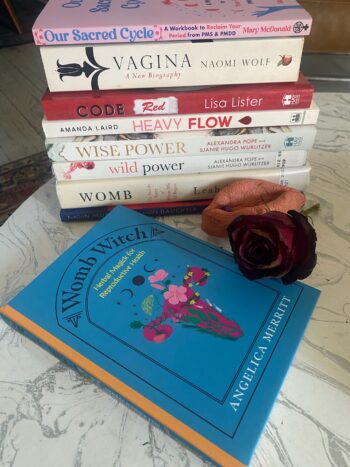
So, 2 years ago, when i realized it was perimenopause that came knocking on my door, i heard the knock. Whenever i am faced with something new, i want to learn all i can about it. I read, i take courses, and i self-study. In this case, i had a date with my menstrual cycle and the quiet whisperings from my womb. I attended a ceremony with Jane Hardwicke Collings, i attended Red School, and also took Adriana Rizzolo’s Womb Healer Teaching Training.
I’m not sure yet just how to incorporate it all into my work as it is actively unfolding. I do know that there was a reason in learned about sacred sexuality, somatic therapy, breathwork, and dance therapy – it is all coming together. And, if you are also on a journey with perimenopause, or want more support with how your menstrual cycle impacts your mental health, and also how to listen to your womb’s wisdom, reach out!
When i pivoted to birth trauma and parenthood, i didn’t realize then that i also needed to learn more about the womb as a way to complete this trifecta. That was the missing piece. Now as i am being initiated by menstruality due to my mom’s death and my own perimenopause, i see this piece as the missing link to it all. True healing and becoming whole is about integrating all of these pieces, and not just from a thinking and talking place, but from an embodied, body-based, and soul level as well.
I have always been walking towards this trailhead, this marker, not unlike the handprint hieroglyphics in caves found in southern France. I have always been inching my way to here, but i just didn’t know it yet. I had to be initiated into this stage of life to have the veil be removed. I had to be ready to see it.
We are cyclical beings and this is me evolving, to connect the trifecta more fully – mind, body and soul, from a red thread lens.
I am ready now. I connected the dots. I hear the call.

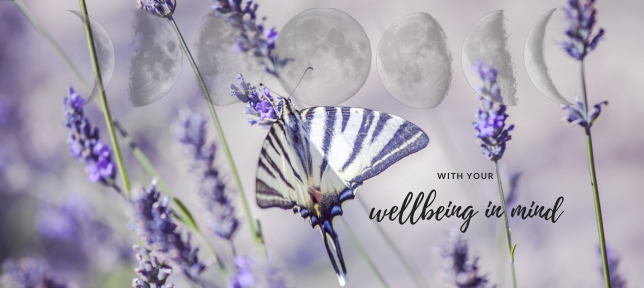

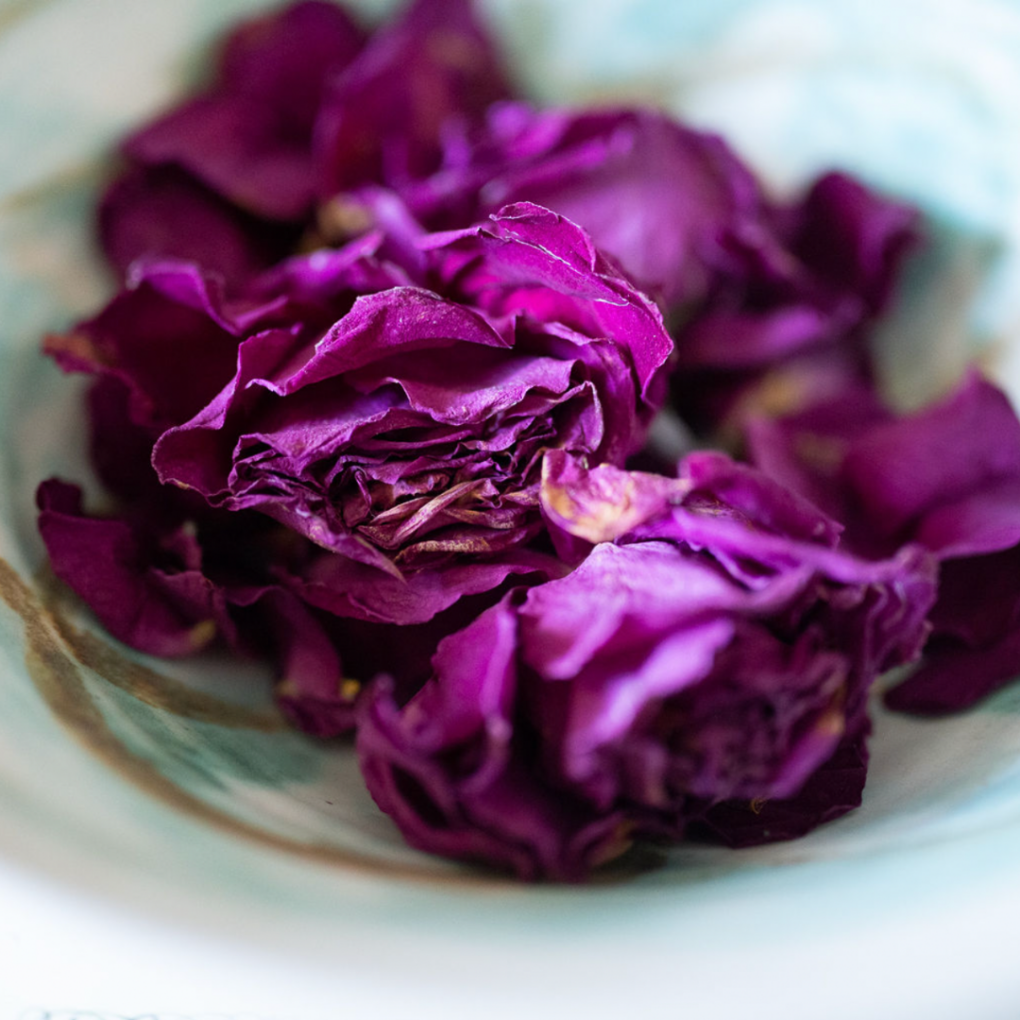 I like to think of my relationship like the growth process of a rose. This perennial flower that grows each year has to go through stages in order to blossom again and again. It needs to be nourished, seen, harvested and pruned regularly. May your relationship have the chance to bloom. It is called a symbol of love for a reason!
I like to think of my relationship like the growth process of a rose. This perennial flower that grows each year has to go through stages in order to blossom again and again. It needs to be nourished, seen, harvested and pruned regularly. May your relationship have the chance to bloom. It is called a symbol of love for a reason!